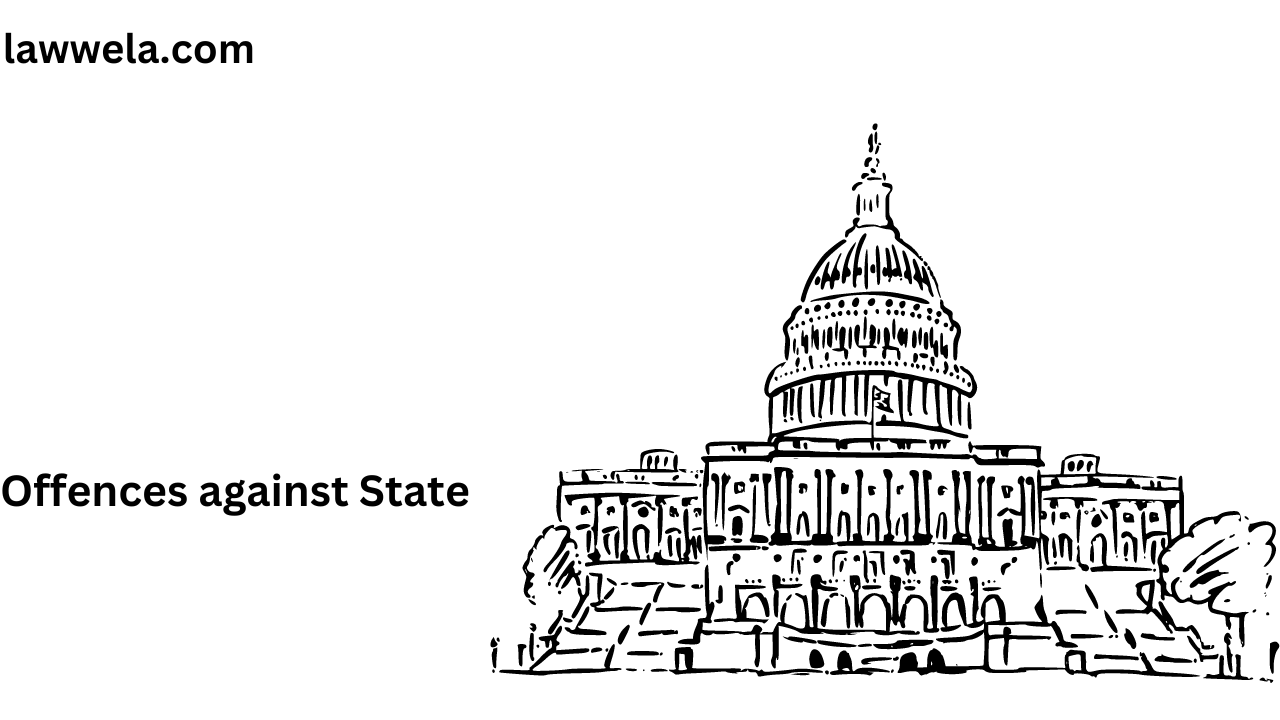Introduction
Under the Indian penal code chapter VI, sections 121 to 130 deal with the safety of the state. There are punishments to safeguard the state against the offences. Waging war means attempting violence against the public nature or government as well as the state. In this whoever refers to within India as well as outside of India.
Section 121 of IPC
The waging of war refers to an organized or deliberated organized attack against government forces and government institutions. The term whoever refers to Indians as well as foreigners. Whoever attempts to attack the public nature with the intention of criminal purpose against the state. Under this purpose and intention behind the act will be taken into consideration. Whoever tries or attempts to wage war against the government of India.
Punishment– shall be punished with death or imprisonment for life while also being liable for a fine. Cognizable offence- non-bailable- trial by a court of the session- non-compoundable.
Conspiracy to commit offences punishable
Section 121 (A) of IPC, Whoever tries to conspire any attack against the Government within or without India. Conspiracy means when two or more persons agree to do an illegal act or legal act by illegal means.
Punishment- shall be punishable with imprisonment for life or with imprisonment of either description which may extend to 10 years and shall also be liable to fine.
Collecting arms, to wage war
Section 122 of the IPC, Whoever collects man, arms, or ammunition or otherwise prepares to wage the war with the intention of violence against the government of India or public nature. Shall be punishable with imprisonment for life or may extend to 10 years of imprisonment and shall also be liable for fine.
Section 123 of IPC
Whoever wages war by any act or by any illegal omission, which conceals to wage war against the government of India shall be punishable with 10 years of imprisonment and shall also be liable for a fine.
Assault on high officials
Assaulting the president or governor etc., with intent to compel or restrain the exercise of any lawful power
Section 124 of IPC, Whoever with the intention of inducing or compelling the president of India or the governor of any state. Using criminal force to assault or wrongful restrain or attempts to wrongfully restrain the governor or president of India, shall be punishable with 7 years of imprisonment and shall also be liable for a fine.
Meaning of “Sedition”
Section 124 (A) It was originally section 113 of Macaulay’s draft penal code of 1837. it was proposed to be included in the Indian penal code for various reasons when the IPC was enacted in 1837. However, the need for this provision was felt when section 124 A was placed in IPC. It was further replaced with minor changes by the IPC amendment 1898 (act IV of 1898), after some inconsequential changes made by the adoption of law orders issued in 1937, 1948, and 150, and by part B States Law Act 1951 the present section 124 A reads as under.
The meaning of sedition means doing certain acts that would bring the government of India established by law in India into hatred or contempt or create disaffection against it. Whoever brings hatred or attempts to excite disaffection (disloyalty and all feelings of enmity) towards the government by words either spoken or written or by sign, or by visible representation or otherwise under this section
Punishment- shall be punishable for 3 years and shall also be liable for a fine.
War against any Asiatic power in alliance with the government of India
Section 125 of IPC, Whoever is waging war against any Asiatic power which is in alliance with the government of India. Anybody abet or wage war against any state that is in friendship or peace with the Indian government. This section is made to protect Indian citizens from going to other countries and then coming back to India for their security. It is premised on the spirit of international peaceful coexistence and on an international obligation of a state to respect the sovereign power of another state.
Punishment- shall be punishable with 2 years of imprisonment for life which may extend to 7 years or shall also be liable for fine.
Section 126 of IPC
Whoever commits depredation or tries to commit on the territories of any power or in alliance or at peace with the Indian government. This section has a wider scope than section 125 of IPC. This section makes the commission of depredation or plunders on the territories of states at peace with the government of India. It applies to any foreign country at peace with India whereas section 125 is only applicable to Asiatic power.
The term depredation means plunder. It is pillaging by men or animals. It must be plundered by a band of men in foreign territory for general robbery. An attack of a similar nature on individual property amounts to theft or robbery. If the plundering is general without reference to any individual, then it amounts to depredation.
Punishment- shall be punishable with 7 years of imprisonment and shall also be liable for a fine and forfeiture of the property used or intended to be used in committing such depredation, or acquired by such depredation.
Receiving property taken by war or depredation
Section 127 of IPC, Whoever receives property by depredation or obtains in war will be punished under this section. It is necessary to prove that the person receiving the property was aware of the fact that the property was received in the commission of the offense of waging war against any Asiatic power in alliance with the government of India.
Punishment- shall be punishable with 7 years of imprisonment and shall also be liable for a fine and forfeiture of the property received.
Escape of a State Prisoner
Section 128 of the Indian Penal Code
whoever being a public servant having the custody of any state prisoner or prisoner of war, voluntarily allows the prisoners to escape from their custody from any place in which such prisoner is confined, shall be liable for punishment.
Punishment- it shall be punishable by life imprisonment or imprisonment which may extend to 10 years and shall also be liable to a fine.
Section 129 of the Indian Penal Code
Whoever is a public servant when they have the custody of any state prisoner or prisoner of war and they negligently suffers such prisoner to escape from any place of confinement in which such prisoner is confined, shall be punishable under this section.
Punishment- shall be punishable with simple imprisonment for a term which may extend to 3 years and shall also be liable to fine.
Aiding escape of rescuing or Harbouring
Section 130 of the IPC whoever knowingly aids or assists any state prisoner or prisoner of war or attempts to rescue or harbors or conceals any such prisoner shall be punished under this section.
Punishment– shall be punished with imprisonment for life or imprisonment which may extend to 10 years and shall also be liable for a fine.
case law
Balwant singh vs. State of Punjab
The accused were alleged to have raised some slogans on the day Smt India Gandhi, then the prime minister was assassinated in a crowded place. The accused was a public servant. The case was that they raised slogans a couple of times but it did not evoke any response from the public. there is no disturbance was caused in public and no people there gathered were affected and carried on with their activities.
Held
The Supreme Court held that the mere raising of casual slogans once or twice by two people was not aimed at exiting or attempting to excite hatred or disaffection towards the Government as established by law in India. The court felt that the police officers read too much into the slogans and exhibited a lack of maturity and sensitivity in arresting the two Government servants.
Bilal Ahmed kaloo vs. state of Andhra Pradesh
A Kashmiri youth was arrested in Hyderabad on charges of sedition. There is only one piece of evidence against him that he was spreading the news that members of the Indian army were indulging in the commission of atrocities against Kashmiri Muslims. Even the charges framed against him were of India or the State Government.
Held
The Supreme Court deprecated how the trial court recorded conviction when there was no evidence and also no essential charges framed in the offense. The court condemned the mechanical order of conviction of citizens in such serious offences and advised that more care should taken before the liberty of a citizen is interfered with.


1 thought on “What are the Offences against State”